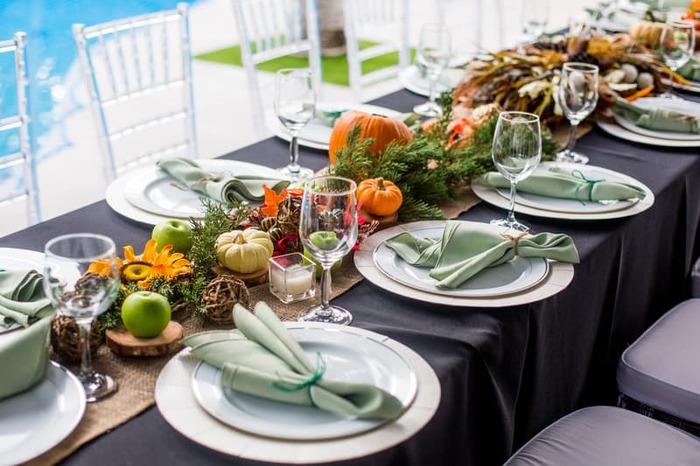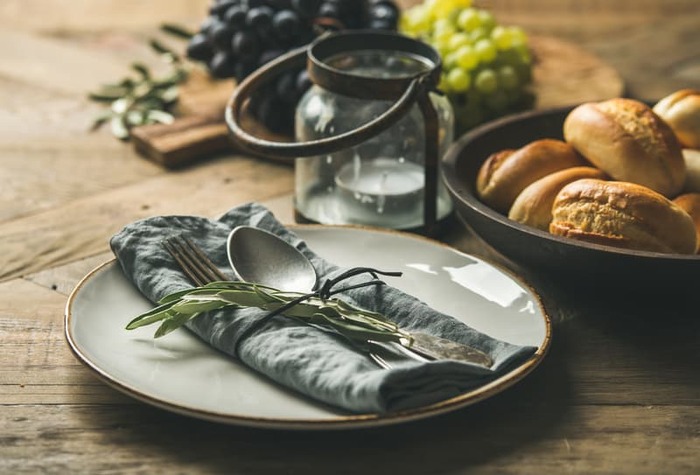- Calls to this hotline are currently being directed to Within Health or Eating Disorder Solutions
- Representatives are standing by 24/7 to help answer your questions
- All calls are confidential and HIPAA compliant
- There is no obligation or cost to call
- Eating Disorder Hope does not receive any commissions or fees dependent upon which provider you select
- Additional treatment providers are located on our directory or samhsa.gov
Setting Boundaries a Key to Holiday Happiness

The holidays are a time of love and togetherness, when family near and far gather around a table to celebrate what they’re thankful for and reunite with those whose company they value the most.
All of that is an idealized version of the holiday season, one we know is more of a cable TV producer’s vision than an actual reality for many people. This time of year brings incredible stress for those who are far away from loved ones, who feel like they don’t have anyone to celebrate with, or who are going through a particularly difficult time. A survey from the American Psychological Association found that 38% of adults said that their stress level increased during the holiday season [1].
The most realistic aspect of that romanticized holiday description might be the “gather around the table” part. According to a 2009 report by the U.S. Bureau of Labor Statistics, nearly all Americans spent an average of about an hour on any given day in November and December with eating and drinking as their main activity [2].
A Journal of Public Policy and Marketing study that broke holidays down into three categories — civic, such as Martin Luther King Day; eating, such as Thanksgiving and Christmas; and mixed, such as Labor Day and Independence Day — found that people tend to consume 14% more on eating holidays than they would on an average day [3].
For a person who is actively struggling with an eating disorder or currently in recovery, the winter holidays are often the most difficult to navigate.
Why setting boundaries can set you up for success
In many aspects of life, it’s not easy to set boundaries. Many people associate boundaries with negativity, and they believe that those who set boundaries are rigid, insensitive, or worse.
But setting boundaries isn’t something a person does to feel self-important, and they’re not meant to be exclusionary. It’s not done to put a person’s mental health in danger; in fact, it’s done to protect the emotional and physical wellness of the person who is establishing these limitations.
Boundaries don’t extinguish healthy relationships. They help maintain them and make them stronger. They are a way of establishing control in situations where it may be easy to feel like you have none.
Setting boundaries is important for self-esteem and self-worth. Healthy boundaries help a person maintain their values without acquiescing to what other people think or feel. On the journey of recovery from an eating disorder, that’s imperative.
The holidays often test those limits. Many people feel an obligation to make plans that they may not feel entirely comfortable with at this time of year. Even if it’s not the overwhelming focus on food during these occasions that concerns you, specific interactions, judgmental family members, or even triggering locations can make the holidays anything but cheerful.
What healthy holiday boundaries might look like for you
Everyone’s experience with an eating disorder and subsequent recovery is unique, and holiday plans can span a variety of activity levels — for some people, there’s an immense emphasis on seasonal gatherings, while for others who may not live near loved ones or may have frayed relationships, there may be fewer obstacles to plan around.
But for anyone who has the potential to be involved in a situation that could feel toxic or dangerous to their recovery this holiday season, here are some tips for setting healthy boundaries.
-
Set realistic expectations.
Your parents may have certain expectations for how the holidays will go. Your siblings may have another set of hopes. Your significant other may want to spend more time with their side of the family. Your friends may have different plans altogether that they would like you to be a part of.
These are their expectations, and it’s not your obligation to fulfill them. Don’t try to be everything to every group of people. Decide what you feel up for, make a plan, and communicate it politely to those who care. If they push back, tell them that you can’t overextend yourself.
-
Don’t be driven by guilt.
As you progress in your recovery, you’ll gain more confidence in the path you set for yourself while you were in treatment. Guilt can be a threat to that.
Whether it’s a particular type of food you would rather not eat or a specific topic you would rather not discuss, don’t let guilt get in the way of your comfort. If someone is personally offended by your decision not to attend a certain event or to leave early, that’s their emotion. Keep yours in check by not letting guilt be a driving force during these holidays.

-
You have the right to say no.
If your aunt’s or uncle’s famous side dish is something you don’t want to eat, you can politely decline. If you find yourself being drawn into a conversation that makes you uncomfortable, you can excuse yourself. If someone makes a comment about your weight that provokes anxiety, you can say that you would rather not talk about that.
You should feel empowered to say no to any situation you would rather not be a part of. These are your boundaries, and other people need to respect them rather than push you.
The boundaries you’re putting up are not forcefields. They’re simply reminders that you value your mental and physical health as you forge ahead in your recovery. It’s up to others to abide by them and respect them.
If they truly care about your feelings, they will.
References:
[1] Schrader, J. (2017, Dec. 8). What we know about the holiday blues. Psychology Today. https://www.psychologytoday.com/us/blog/evidence-based-living/201712/what-we-know-about-the-holiday-blues. [2] Dannibale, K. (2014). The effects of the holidays on eating disorders. New Errands. https://journals.psu.edu/ne/article/download/59255/58982. [3] O’Callaghan, T. (2009, Dec. 24). Have another cookie, it’s the holidays! Why our eating habits vary on the weekends and special occasions. Time Magazine. https://healthland.time.com/2009/12/24/have-another-cookie-its-the-holidays-why-our-eating-habits-vary-on-weekends-and-special-occasions/.Timberline Knolls is a residential treatment center located on 43 beautiful acres just outside Chicago, offering a nurturing eating disorder recovery environment for women and girls age 12 and older.
The opinions and views of our guest contributors are shared to provide a broad perspective of eating disorders. These are not necessarily the views of Eating Disorder Hope but an effort to offer a discussion of various issues by different concerned individuals.
We at Eating Disorder Hope understand that eating disorders result from a combination of environmental and genetic factors. If you or a loved one are suffering from an eating disorder, please know that there is hope for you, and seek immediate professional help.
Published on November 16, 2021. Published on EatingDisorderHope.com
Reviewed & Approved on November 16, 2021 by Jacquelyn Ekern, MS, LPC

The EatingDisorderHope.com editorial team comprises experienced writers, editors, and medical reviewers specializing in eating disorders, treatment, and mental and behavioral health.

